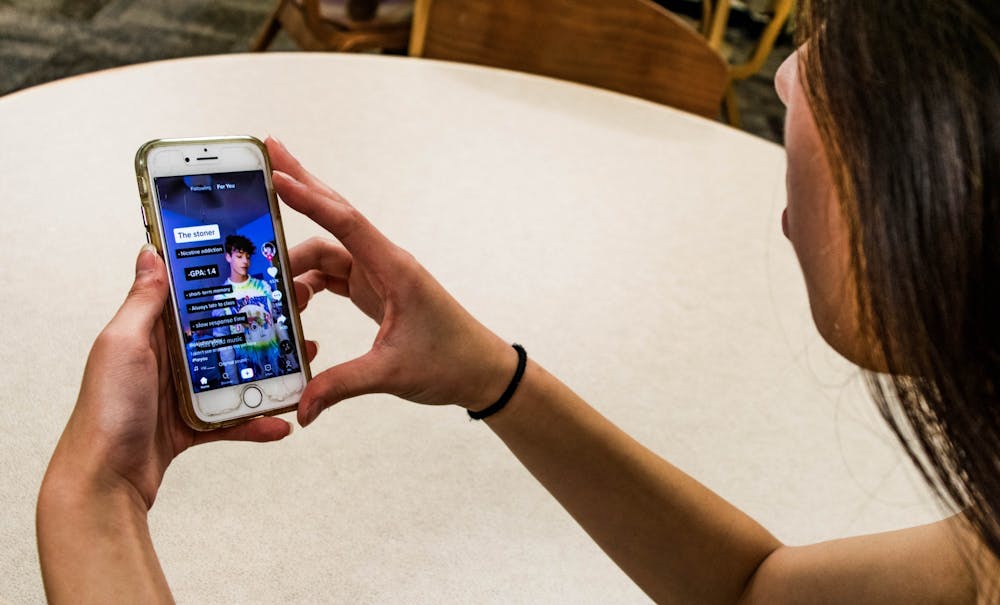Any avid Twitter user has probably encountered a funny video or two. But recently, it seems that videos from one specific app are all over Twitter feeds: TikTok.
TikTok is a social media app where people can post short videos. Most videos consist of singing, dancing, lip-syncing and jokes. Users, or “TikTokers,” can make videos and edit them with music and filters.
According to Jackson Hughes, a junior studying strategic communication, TikTok culture is growing at Ohio University. Hughes has found that some of the more popular OU students he follows on Twitter use TikTok.
To Hughes, TikTok is a lot like the discontinued app Vine, another video-based social media app.
“TikTok is basically Vine: short, funny videos, but there isn’t as much production necessary,” Hughes said.
Hughes has noticed that, like Vine, TikTok is starting to have recurring jokes and references in videos to other videos — what he calls to a “culture.”
“I see people dancing a certain distance away from their phone and I know they’re making a TikTok,” Hughes explained. “It’s another community. Like sometimes I’ll understand a reference because I saw that on TikTok. It’s sort of like meme culture.”
Hughes also noted the popularity of e-girls and VSCO girls on the app, internet subcultures of their own. TikTok gives them a platform, he said.
Another thing Hughes has noticed is the popularity of TikTok among younger students on campus. For him, it’s almost a way to identify freshmen.
“[TikTok] makes me feel old,” he said. “I ask people whether they prefer Vine or TikTok, and some freshmen don’t even know what Vine is.”
Hughes himself likes TikTok, but considers himself a TikTok novice. He sees the app as something a lot of people download as a joke, but find themselves passing hours worth of time on it.
Others do not see the appeal in TikTok.
“I think it’s dumb,” Jilly Anderson, a sophomore studying war and peace studies, said.
Anderson finds the app suspicious and thinks people should be concerned with the privacy of the app. For her, it’s a foreign app American users don’t know much about.
“It’s a Chinese app that people are signing up for, with China’s censorship regulations,” Anderson said. “People are signing up and they don’t know that. They give away their age, name, location. We don’t know how that information is being used.”
Anderson does find some positives on TikTok, though. She likes some of the makeup videos on the app.
“I guess one of the good things is that people get discovered,” Anderson added. “People can start careers, like Shawn Mendes and Vine, so I see some potential in that.”
Joelle Wernick, a sophomore studying biological sciences, has 48.8 thousand followers on the app.
Wernick has had a TikTok account since 2015, long before the app became the household name it is now. She only made her account public this past June, and after, one of her videos went viral.
Wernick said her posts are mostly just funny, unserious videos, but she has used the app to address social issues, she said.
“People can spread hate on TikTok, but it usually gets taken down pretty quickly,” Wernick said.
Wernick likes the app and thinks it’s fun, but sometimes has issues posting what she wants.
“Sometimes it just doesn’t let you post,” Wernick said. “It’s called shadowbanning. Sometimes I work super hard on a video and it won’t let me post.”
TikTok provides Wernick somewhat of a relaxing activity to take her mind off things.
“It’s a mindless thing where I don’t have to focus on school,” Wernick said.





